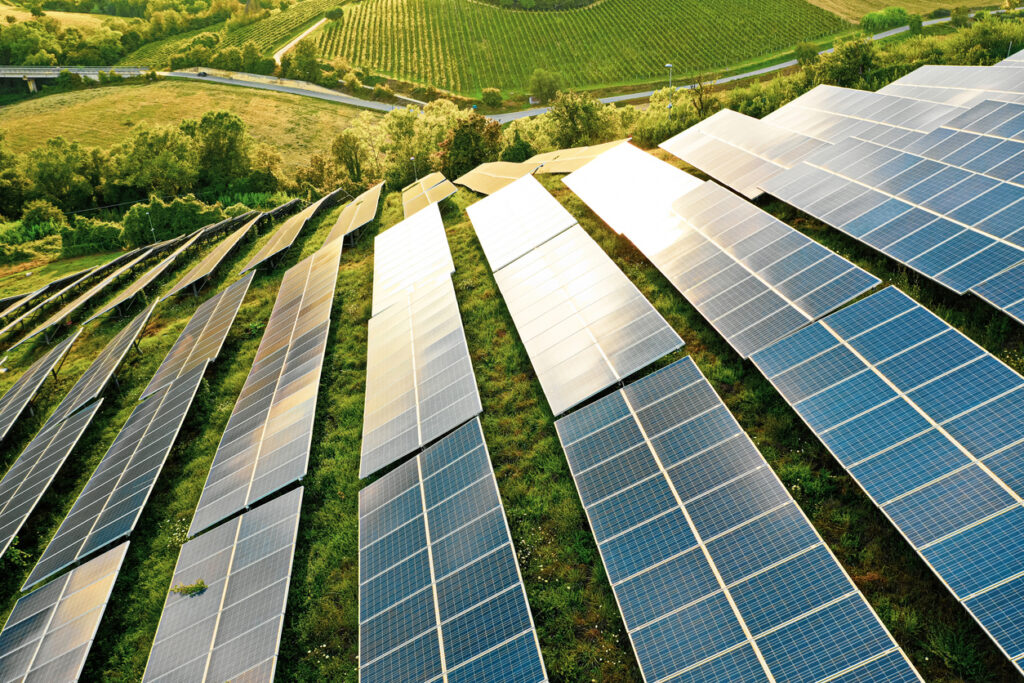Helping to tackle the climate crisis is not just for multi-nationals or B2C organisations with a higher carbon footprint. Tackling the issues staring directly at us is not something solely for the influential decision makers at COP26. The business community, including SMEs and start-ups have a role to play in this crisis too. We all do, as conscious citizens on this planet that has evolved and adapted with us.
Is sustainability part of your culture?
Workplaces are where we spend most of our adult lives, and so as collectives of people, we can really impact how we treat our world. We must embed sustainability into organisational culture and subsequently decision making. But how do we do this, especially if no commitment to sustainability has previously been declared?
This commitment must be companywide and embraced by employees at all levels: a pledge to our planet is the desired output. This pledge starts with purpose. We are seeing a sharp increase in purpose-led businesses, those that are human-centric and heart-led. This rise is a response to the stark facts – the reality – unveiling that where only financial profit is an incentive, people disengage.
A purpose mobilises people in a way that pursuing profits alone never will. For a company to thrive, it needs to infuse its purpose in all that it does
– Sherry Hakimi
Communities of such organisations are gaining welcome interest, with certified B Corporation companies exemplifying how businesses can be a force for good. An organisation’s purpose needs to be platformed in being sustainable. Sustainability should not be a strategic objective that is annually re-written as the “business as usual” takes over- as it so often does. If sustainability is embedded into why an organisation exists, our existence at work becomes more meaningful.
It is our human duty to care for, and respect, our planet and work in ways in which the finite resources are no longer plundered with no thought to regeneration. We argue that by treating sustainability as an organisational necessity, it gives the organisation greater purpose. As Partners for a New Economy states on their website: “There is growing consensus that an economic system that treats nature and people as inexhaustible resources leads to unacceptable environmental, social and political impact.”
Defining sustainability
After purpose, we must define sustainability. The environmental aspect of sustainability is undoubtedly what our collective energy as a species must focus on right now. A culture of sustainability must also consider the importance of balancing economic efficiency, social equity and environmental accountability.
Economic sustainability
This is often overlooked but is crucial to the survival of your organisation. This area is concerned with the approach you take toward tracking energy, time investment and financial investment; how you measure your people as humans rather than a resource.
Social sustainability
Social sustainability – also known as ‘CSR’ should look at how you give back to your community. Within this, pro-bono and charitable commitments should be defined, as well as social mobility initiatives. There is the opportunity to take positive action to tackle inequality and inclusion issues.
Environmental sustainability
This is where commitments to combating climate change reside. A robust carbon footprint tracking framework will enable a commitment to carbon offsetting and becoming climate positive. But there is more that can be done, both as a group and as individuals; consider your digital carbon footprint, for example the server your website is hosted on. Is it ‘green’?
Ways to make your culture more sustainable
1. Commit and inspire in a strategy
This should include what is aspirational for a given time period, what actions will result in this having a positive impact, and who will action it within this time frame. At this point, especially for rapidly growing start-ups, it should be considered who owns sustainability. Does this sit with an individual or team of individuals with expertise in this area? Or do we have sustainability ambassadors whose passion lies here, and can re-train?
We are here to keep our world alive, and as individuals at work, thrive in knowing we are purposeful
It can be deduced that where people can bring their personal values to work, higher levels of engagement and fulfilment are found. As Shannon Houde poses in her 2021 book, Good Work, the purpose-driven job market is growing for this reason.
When the majority of our workforce is composed of Millennials and Gen Z, we can expect to see values aligned to the green agenda, social consciousness and challenge to the Capitalist economic system gaining salience. Every organisation regardless of head count will be expected to have a strategy for sustainability.
2. Have a client and supplier manifesto
This will help guide decision making if we know who we do and do not conduct business with. This can produce a community of more ethical and environmentally friendly organisations; and in dealing with each other, ideas, and initiatives on how to be more sustainable emerge.
We are not in competition in a sustainable world, as alluded to by Frederic Laloux when describing the Teal organisation. Furthermore, sustainability can provide a competitive advantage; both through attracting ethically driven consumers and employees, whilst also leading to innovation. We are here to keep our world alive, and as individuals at work, thrive in knowing we are purposeful.
3. Share and celebrate why sustainability matters
Giving sustainability a profile in your organisation makes it important and on par with other business success measures. At all levels. As you are now, and as you grow/diversify. Sharing news on individuals who have raised money for a charity, and celebrating your climate positive status; and even highlighting sustainable healthy lifestyles such as Veganism. A monthly Sustainability bulletin is a simple way of communicating this and keeping things like the UN’s 17 SDGs in the forefront of our thinking and actions.
[cm_form form_id=’cm_65a14c3f5da64′]
4. Review and revisit the strategy and actions
This can be done at regular intervals through pulse check surveys. At this point, it is important that leaders either bring matters of sustainability to the table, or a sustainability expert and/or rep is given the space to – on a regular basis – at leadership meetings.
Consider the clients and suppliers you have engaged with – how much sustainable knowledge has been shared?
A purpose driven means of measuring actions and iterating strategy is to consider Saïd Business School Professor Colin Mayer, ‘Value Creation Theory’. Mayer states that these emergent “mindful intangible corporations” look beyond the balance sheet and shareholder return. Organisations, in their sustainability commitment, can focus on ecological (natural), social, human, intellectual, material, and financial values – in that order of importance.
5. Consider the impact
As an SME you may think your impact on overcoming the climate crisis is small but do take the time to produce an annual impact report to link back to your purpose and strategy on sustainability that form your pledge to our planet. When looking at impact, do consider the clients and suppliers you have engaged with – how much sustainable knowledge has been shared?
Finally, talk with your team, do they consider their social and environmental impact more than previously? Collective awareness of sustainability issues inform the individual, and vice versa in a beautiful loop of self-fulfilling-sustainability-decision-making.
By looking at your impact you can define if you as a small, but purposeful collective have acted sustainably
Avoid ambiguity and embrace sustainability
By looking at your impact you can define if you as a small, but purposeful collective have acted sustainably. As RSA’s recent report on Regenerative Futures stated so evocatively: “We are all learning how to do this – how to be and bring about a future where we are in better relation, not just with one another as humans but with other species and with the ecosystems that we depend upon.”
Sustainability in organisations is still ambiguous and evolving. As we learn, there will be improvements to be made. The scale of impact may be small, but small changes ripple out; they ripple from our rivers and lochs to seas and oceans, to the clouds and air, so that our ecosystems can continue to thrive, alongside us, on our damaged, but salvageable planet.







